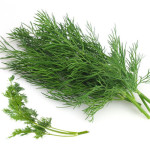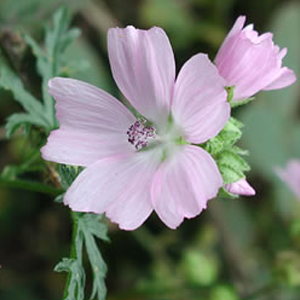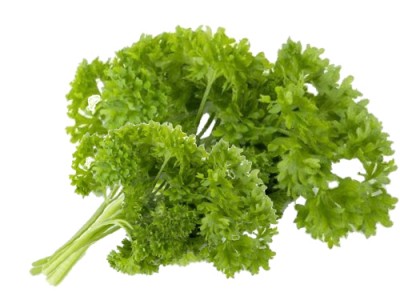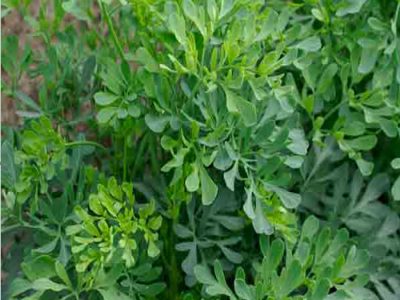
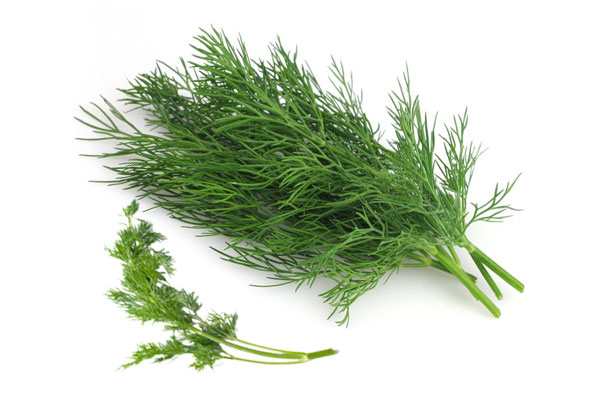
Dill : Health Summary , Nutrition And Uses
About Dill
Scientifically known as Anethum Graveolens dill belongs to the Apiaceae family and the genus of anethum. This leafy vegetable is an annual herb and has derived its name from the Germanic origin. For long dill has been used for its culinary purpose but even before that it was used as armour to shield themselves against evil spirits and also used for its medicinal properties to treat ailments. For a good harvest of dill it needs to be planted in a warm summer amidst of well drained soil for its fertility. It grows up to 1 – 2 feet in height and has dark green leaves. Its appearance is similar to that of parsley and fennel but it taste differs from them. When one consumes dill its like a burst of flavour in their mouth, one can sense sweetness combined with a little bitterness from the leaves of a dill plant.
Dill Nutrition Value
- 100 g of this herb provides 37.5% of folates (vitamin B11) 14% of vitamin B-6 (pyridoxine) 23% of riboflavin (vitamin B-2) 140% of vitamin-C 257% of vitamin-A 21% of calcium 82% of iron and 55% of manganese.
- It helps to calm down hiccups due to allergies, hyperactivity, or nervous disorders.
- Effective remedy for an upset stomach.
- It help to inhibit fungal infections effectively.
- Reduce the inflammation and the associated pain of diseases such as rheumatoid arthritis, gout, and arthritis.
- Help clear congestion in the respiratory system due to histamine, allergies or coughs.
- The seeds and leaves are very good Mouth and Breath Fresheners.
- Cancer prevention.
Dill Health Benefits
- Maintain proper menstrual cycles in women.
- Provide relief from insomnia, hiccups, diarrhea, dysentery, menstrual disorders, respiratory disorders, and cancer.
- Good for oral care and can be a powerful boost for your immune system.
- Protect you from bone degradation.
- Used on the scalp to get rid of lice.
- Essential oils present in dill are stimulating and they activate the secretion of bile and digestive juices.
- These oils also stimulate peristaltic motion of the intestine, easing the passage of bowel movements and relieving constipation.
- Helps to induce sleep at night.
- Protecting you from bone loss.
- Reduce the fluctuations of serum lipids and insulin levels in corticosteroid-induced diabetes.
- Prevent the embarrassing condition of excessive gas.
- Prevent a number of microbial infections throughout the body.
| Principle | Nutrient Value | Percentage of RDA |
|---|---|---|
| Energy | 43 Kcal | 2% |
| Carbohydrates | 7 g | 5.5% |
| Protein | 3.46 g | 6% |
| Total Fat | 1.12 g | 4.5% |
| Cholesterol | 0 mg | 0% |
| Dietary Fiber | 2.10 g | 5.5% |
| Vitamins | ||
| Folates | 150 µg | 37.5% |
| Niacin | 1.570 mg | 11% |
| Pantothenic acid | 0.397 mg | 8% |
| Pyridoxine | 0.185 mg | 14% |
| Riboflavin | 0.296 mg | 23% |
| Thiamin | 0.058 mg | 5% |
| Vitamin A | 7718 IU | 257% |
| Vitamin C | 85 mg | 140% |
| Electrolytes | ||
| Sodium | 61 mg | 4% |
| Potassium | 738 mg | 16% |
| Minerals | ||
| Calcium | 208 mg | 21% |
| Copper | 0.146 mg | 16% |
| Iron | 6.59 mg | 82% |
| Magnesium | 55 mg | 14% |
| Manganese | 1.264 mg | 55% |
| Phosphorus | 66 mg | 9.5% |
| Zinc | 0.91 mg | 8% |
It is often used as a condiment or a herb but rarely as a core ingredient. It is rich on phytochemical compounds, these nutrients are only derived from plants as they lack in animal meat; are highly nutritious for consumption. A cup of chopped dill will consist of only 4 calories making it a low calorie food. People watching their weight should indulge in more of dill and dill related delicacies.These seeds are also a good source of vitamin A and has healing compounds namely monoterpenes and flavanoids. Monoterpenes is known to make the food a chemoprotective food as it kills the carcinogens present in the body. Chain smokers or people who work on grills and are prone to charcoal smoke should consume dill on a regular basis in order to nullify the effect of the cancer causing substance. It is also an anti bacteria spice where it regulates or curbs the growth of bacteria; a property similar to that of garlic. A good source of dietary fibre and iron dill aids in good metabolic activities and helps in recovering from digestive disorders. It is a very less known fact to the people that dill has a high content of calcium that prevents bone loss and also aids in good bone health. The Greeks believed that dill was a sign of wealth and prosperity and was used to heal many chronic diseases.
How To Enjoy Dill
Dill is no longer merely used as a herb to garnish but its bountiful flavour in food makes it a game changer. One can infuse dill in many cuisines, baked potatoes and cheese with dill, tuna with stuffing of dill it also goes well with salmon and snapper fish. Dill pickles are finger licking sumptuous pickled dills in different
flavours. One would always find dills as an essential part of any dips made out of hung yoghurt or fresh cream. Soups with a dash of dill will enhance the flavour of the food and also adds a lot of taste to the boring food.
Dill is soon taking over the culinary world due to its flavours and medicinal properties.

